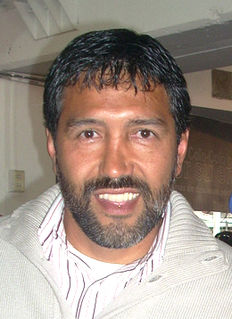A Quote by Arthur Schopenhauer
To repeat abstractly, universally, and distinctly in concepts the whole inner nature of the world , and thus to deposit it as a reflected image in permanent concepts always ready for the faculty of reason , this and nothing else is philosophy.
Related Quotes
Metaphysics is the study of the most general nature and basic structure of reality, and therefore the concepts of metaphysics, concepts like time, space, identity, resemblance, substance, property, fact, event, composition, possibility, etc., are the most fundamental concepts. Thus metaphysics is the most fundamental theoretical discipline.
Every morning I'd have coffee with my wife and we would discuss ideas. Sixty percent of what I did for the stores was concepts. The other forty percent was correcting and cleaning up other concepts in house, or doing final art on my concepts. Most of my concepts were so finished they could turn them over to somebody else.
But in the end one also has to understand that the needs that religion has satisfied and philosophy is now supposed to satisfy are not immutable; they can be weakened and exterminated. Consider, for example, that Christian distress of mind that comes from sighing over ones inner depravity and care for ones salvation - all concepts originating in nothing but errors of reason and deserving, not satisfaction, but obliteration.
Mysticism is a rational enterprise. Religion is not. The mystic has recognized something about the nature of consciousness prior to thought, and this recognition is susceptible to rational discussion. The mystic has reasons for what he believes, and these reasons are empirical. The roiling mystery of the world can be analyzed with concepts (this is science), or it can be experienced free of concepts (this is myticism). Religion is nothing more than bad concepts held in place of good ones for all time. It is the denial-at once full of hope and full of fear-of the vastitude of human ignorance.
The progress of science has always been the result of a close interplay between our concepts of the universe and our observations on nature. The former can only evolve out of the latter and yet the latter is also conditioned greatly by the former. Thus in our exploration of nature, the interplay between our concepts and our observations may sometimes lead to totally unexpected aspects among already familiar phenomena.
The experimentalists think that we can only get at our concepts by way of empirical investigation, while the armchair philosophers think that we can skip the experiments and figure things out from our armchairs. What they have in common, however, is regarding our concepts as the targets of philosophical theorising, and I just don't think that, in the vast majority of cases, the subject matter of philosophy has our concepts as its target.
Words are acoustical signs for concepts; concepts, however, are more or less definite image signs for often recurring and associated sensations, for groups of sensations. To understand one another, it is not enough that one use the same words; one also has to use the same words for the same species of inner experiences; in the end one has to have one's experiences in common.
When one analyzes the pre-conscious step to concepts, one always finds ideas which consist of 'symbolic images.' The first step to thinking is a painted vision of these inner pictures whose origin cannot be reduced only and firstly to the sensual perception but which are produced by an 'instinct to imagining' and which are re-produced by different individuals independently, i.e. collectively... But the archaic image is also the necessary predisposition and the source of a scientific attitude. To a total recognition belong also those images out of which have grown the rational concepts.
The role of metaphysics in relation to other disciplines, whether philosophical or not and including the natural sciences, is thus a foundational role. Lack of clarity in the concepts of metaphysics implies lack of clarity in other disciplines - both theoretical and practical disciplines - employing those concepts or employing concepts that depend on those of metaphysics.
When people get taken over by the ego to such an extent, there is nothing else in their mind except the ego. They can no longer feel or sense their humanity - what they share with other human beings, or even with other life forms on the planet. They are so identified with concepts in their minds that other human beings become concepts as well.







































